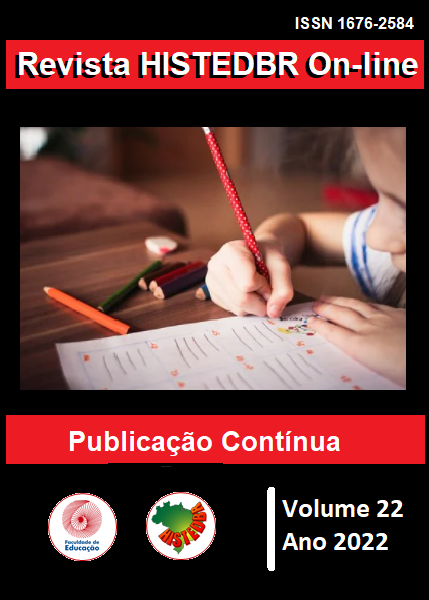Abstract
We present an examination of the relationship between the capitalist mode of production and the implementation of school education in indigenous communities, with a view to designing elements that relate this implementation with the facilitation of the incorporation of natural and human resources of these societies to the dynamics of expanded capital accumulation. Our hypothesis is that such an introduction alters social relations established in historical experience based on communitarianism and collectivism by implanting, within these societies, fundamental relations of the capitalist mode of production. We examine the hypothesis in the light of what Rosa Luxemburg (1985) called “[...] the struggle of capital against the natural economy.” We used this analytical framework in three schools, territory and indigenous communities around the city of Santarém-PA. The data pointed to a contradiction in schooling insofar as, on the one hand, it induces training for salaried work, business management and the transmission of Eurocentric knowledge, but, on the other hand, re-elaborations are revealed in the school activity that strengthens, values and expands the transmission of traditional knowledge and “native” indigenous languages.
References
BRASIL. Diretrizes Curriculares Nacionais para a Educação Escolar Indígena. Brasília: MEC, 1999. Disponível em: https://bityli.com/vdbxfMzv. Acessado em 20 de junho de 2022.
BRASIL. Referencial Curricular Nacional Para a Educação Escolar Indígena. Brasília: MEC, 2012.
LUXEMBURGO, R. Acumulação do capital. São Paulo: Nova Cultural, 1985.
MARX, K. O capital: crítica da economia política. São Paulo: Nova Cultural, 1984. V.2
MORAIS, Pe. J de. História da Companhia de Jesus na extinta província do Maranhão e Pará. Rio de Janeiro: Alhambra, 1987.
RODRIGUES, G. C. L. Educação escolar em comunidades indígenas no contexto da reprodução ampliada do capital. In: SEMINÁRIO INTERNACIONAL ‘TEORIA POLÍTICA DO SOCIALISMO’, 6., 2014, Marília-SP. Anais [...]. Marília-SP: Programa de Pós-graduação em Ciências Políticas, 2104. Disponível em: https://bityli.com/tbpbzGwc. Acesso em: 21 jan. 2022.
RODRIGUES, G. C. L. Educação indígena: considerações acerca da implantação de escolas indígenas. Revista Exitus, [S. l.], v. 3, n. 2, p. 169-180, 2016. Disponível em: https://bityli.com/mSypcPsM. Acesso em: 08 out. 2021.
RODRIGUES, G. C. L. Surara Borari, Surara Arapium: a educação escolar no processo de reafirmação étnica dos Borari e Arapium da terra indígena Maró. 2016. Tese (Doutorado) – Universidade Estadual de Campinas, Campinas, SP, 2016. Disponível em: https://bityli.com/cyHdQpII. Acesso em: 15 abr. 2022.
SAVIANI, D. Escola e democracia. Campinas: Autores Associados, 1997.
SINGER, P. Apresentação. In: LUXEMBURGO, R. Acumulação do Capital. São Paulo: Nova Cultural, 1985.

This work is licensed under a Creative Commons Attribution-NonCommercial 4.0 International License.
Copyright (c) 2022 Gilberto Rodrigues


